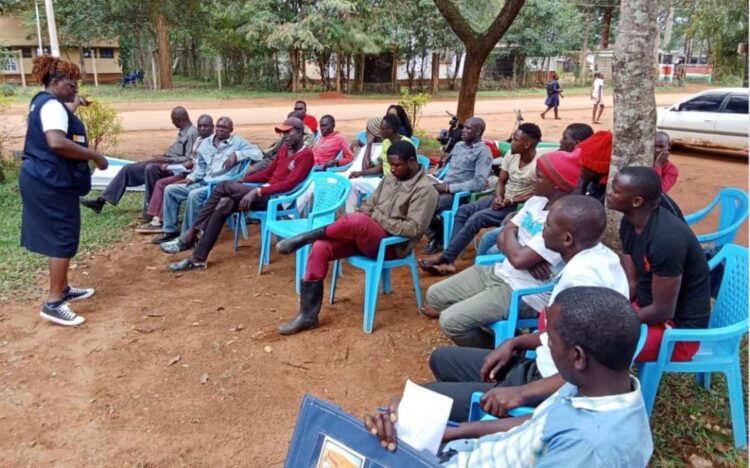EDITORIAL
In the global push for sexual and reproductive health and rights (SRHR), one voice has remained notably underrepresented: men’s.
Across continents, SRHR policies and advocacy have focused rightly on women and girls. After all, it is they who disproportionately bear the consequences of limited access to contraceptives, unsafe abortions, child marriage, and maternal mortality. But this singular focus has left behind a critical piece of the puzzle: the men who impregnate, the men who legislate, and the men who often control the purse strings and social norms.
Engaging men in SRHR is not a distraction from women’s rights. It is a necessary strategy for making those rights real.

In Uganda, over 314,000 unsafe abortions occur every year, with an estimated 1,500 women dying as a result. Behind most of those pregnancies is a man, some willing, many irresponsible, others uninformed. Many of them pay for the abortions; some deny responsibility altogether. Very few, if any, are held accountable.
It is time we asked: Why are men not being targeted in SRHR campaigns, policies, and education programs with the same intensity as women?
Globally, only a small percentage of SRHR resources and research address men’s roles in sexual health despite their outsized influence. In much of sub-Saharan Africa, men dominate political, religious, and cultural leadership. In Uganda’s Parliament, over 70% of lawmakers are men. Nearly all national budgets and laws including those governing reproductive rights are debated and passed by them.
And yet, Uganda’s national budget for FY2025/26 allocates only UGX 3 billion (less than 0.05% of the total health budget) specifically for SRHR programs. The overwhelming bulk of that is directed toward women. While that is urgently needed, it’s shortsighted. Failing to include men in both funding and education creates a vacuum where ignorance, stigma, and gender-based violence fester.
Involving men isn’t just about avoiding harm. It’s also about building allies.
Men who understand SRHR are more likely to support their partners’ use of contraception, accompany them to antenatal care, and resist harmful traditional practices like child marriage and female genital mutilation. Educated men are also more likely to champion comprehensive sexuality education, advocate for inclusive laws, and shift harmful gender norms in their families and communities.
Indeed, the World Health Organization, the UNFPA, and African Union all recognize the importance of male engagement. Uganda even launched a National Male Involvement Strategy in 2021. But policies, without political will and sustained funding, are just paper.
If we want to see real change, if we want to reduce maternal mortality, prevent teenage pregnancies, and advance gender equality, then we must begin by confronting an uncomfortable truth: women cannot win this fight alone.
This is not a call to divert resources away from girls and women. It is a call to amplify those efforts by ensuring men are part of the solution, not silent bystanders or worse, obstacles.
Corporate leaders should invest in male-targeted wellness programs. Schools should teach boys about consent and contraception, not just biology. Policymakers must demand SRHR budgets that reflect the importance of engaging all genders. And civil society must build campaigns that recognize male ignorance not as malicious, but as a solvable gap.
Men are not the enemy. But they must stop being invisible.
By Parrots Media Editorial Team
Email: info@parrotsug.com








































